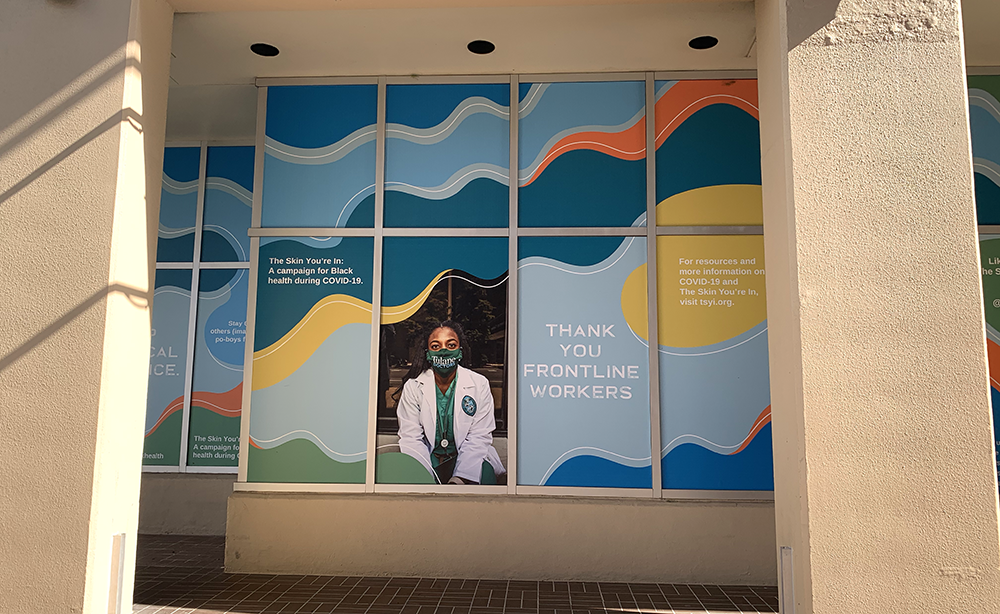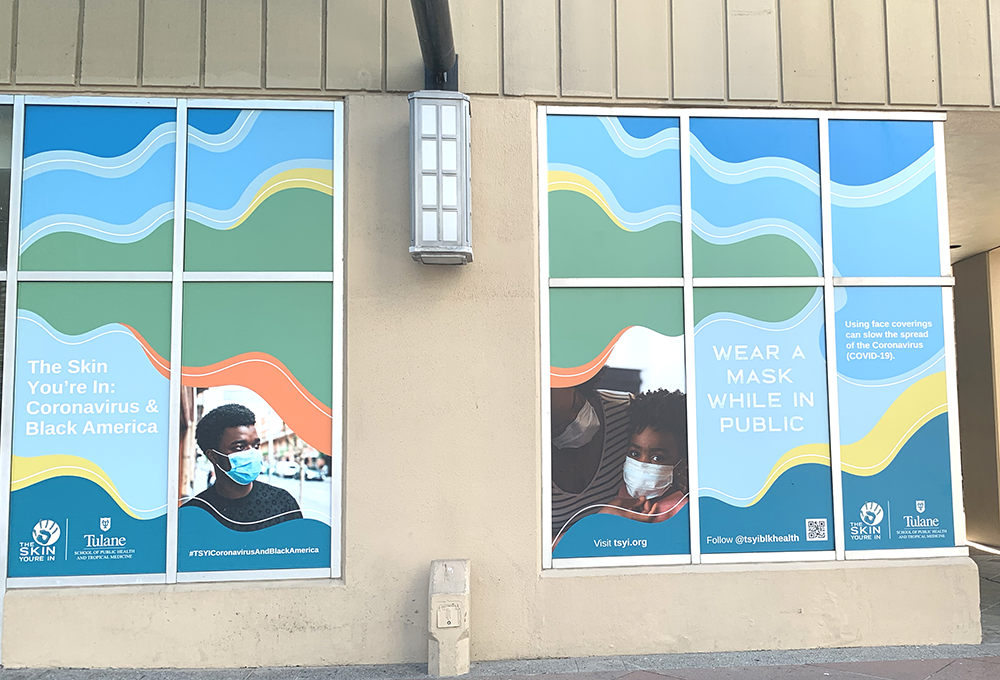Diabetes. Stroke. Heart disease. Even COVID-19. All of these deadly health concerns disproportionately affect Black communities, but the underlying reasons for the inequity have little to do with biology and everything to do with the systems and myths that adversely impact health.
The Skin You’re In (TSYI) is a multi-media social marketing campaign, the goal of which is to improve Black health outcomes. The brainchild of Dean Thomas LaVeist, the campaign started with a documentary but now includes social media platforms, outreach, and, soon, neighborhood level action committees.
“It provides a space for us to, in a very meaningful way, have deliberate conversations around how to better communicate Black health issues,” says Assistant Professor Dr. Alicia Battle, who helps lead the project.
At the start of 2020, The Skin You’re In existed only as a documentary. LaVeist had planned it as a docuseries, but the spread of the pandemic changed everything. New Orleans became one of the first hotspots for the novel coronavirus, and LaVeist could already see that the virus would likely hit minority communities the hardest. He was able to pull together a team of faculty and staff who could spring into action to address the misinformation that had already begun to spread across the internet.
The campaign is not just about COVID-19. “At some point, we hope that when we’ve gotten past COVID-19 taking over our entire lives and we’ve learned to live with it, we’ll move to other topics,” says Battle, “Like the serious chronic illnesses that are listed under the 10 leading causes of death that impact Black communities disproportionately, like heart disease, upper respiratory diseases like asthma and COPD, and diabetes.”
Battle, Program Director Lacey Allen, and a few dedicated paid staffers have led the effort, but much of the work has largely been driven by volunteers, many of them public health students.
Over the past year, the team has produced substantial online content and conducted in-person outreach at socially distanced fairs and events like the Juneteenth celebration at Armstrong Park. In all of their efforts, communication and connecting people to resources has been key.
“The Skin You’re In program allows us to leverage our forum to share the information and dispel myths around how to get access to care here in New Orleans,” says Battle. “There are some really great programs, but if no one knows about them or how to get access to them, then the work that has gone in (to create these resources) is for naught.”

In November, TSYI will premiere an ad campaign featuring New Orleans-own bounce music superstar Big Freedia talking about the importance of wearing a mask.
For much of the year, TSYI has achieved a lot on limited funding, but the effort has recently been funded by the CDC Foundation, which will give them an opportunity to ramp up the effort. This expansion will include the development of a series of local action committees where residents in individual neighborhoods will be able to weigh in on the messaging and provide input on how best to communicate with their community. Although social media serves as a convenient resource, Battle and her team are aware that not everyone is online and that messaging has to consider the corner stores, the free publications, and other means of communicating to a broad audience. “It’s not one size fits all,” she says. “It’s all about meeting people where they are.”
The project is also making TSYI transferrable so universities in other parts of the country will be able to create their own chapters. The Tulane group will develop the template, but the flexibility of the program will enable each chapter to modify it to suit the needs and nuances of another city facing stark health disparities.
–Dee Boling
###

